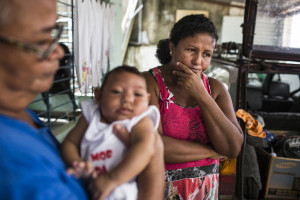By Virginia Villa
As the Zika virus continues to spread, the question of abortion rights has become more prominent. The Zika virus is unique in that it is spread through mosquitos and sexual intercourse, making it difficult to definitively tell how every case came to be. One of the main controversies surrounding the virus is its link to birth defects, and whether or not this link warrants the legalization of abortion in states that are pro-life. In the United States, abortion is an issue left to the states, but in more religiously homogenous nations, abortion completely banned. The issue is that while little is known about the Zika virus, it clearly causes health complications in pregnant or soon to be pregnant women and birth defects. At this point, the symptoms of the Zika virus appear to be mild for men and non-pregnant women, including fever, rash, joint pain, and red eyes.
On the other hand, pregnant women infected with the Zika virus are more prone to having children with a neurological syndrome that is linked with the virus. Though the first couple of cases of Zika have just started to show up in the United States, countries like Brazil, which have banned abortion but have growing numbers of Zika cases, have been in crisis over the virus for months. Currently, as many as 4,000 cases of babies born with this neurological syndrome are suspected. As more information and research about the virus develops, the potential of once pro-life states to become pro-choice is increasing. The ethical dilemma posed by the sickness is fairly complex. Since not much is known about the virus and its long term effects or its relation to birth defects, religious politicians might be hesitant to agree on policy change regarding abortion. On the other hand, continuing to outlaw abortion while the virus is still unpredictable could put a serious burden on the children born of women with the virus and their families.
If one thing is certain it is that states where Zika outbreaks are considerable should be putting as many resources and efforts into researching the virus as possible, so hopefully it can be better understood or even cured. In the mean time, some states may consider a temporary lift on the abortion ban until more can be done about the virus, but in more religious states like Brazil, this is unlikely. Moreover, the economic woes that the Zika virus could create are a concern. Already, people around the world are reconsidering travel to areas where Zika is most prominent, and this could have negative effects on states that thrive on tourism. Even the Summer Olympics, which are set to be held this summer in Rio de Janiero, have come into question as a result of the Zika virus. State officials and members of the International Olympic Committee are beginning to question whether or not holding the Olympics games in Brazil in the midst of a viral outbreak is safe. If a decision comes down to change the location of the Olympics, there could be serious economic strife for Brazil, which has been preparing for the games for years.

